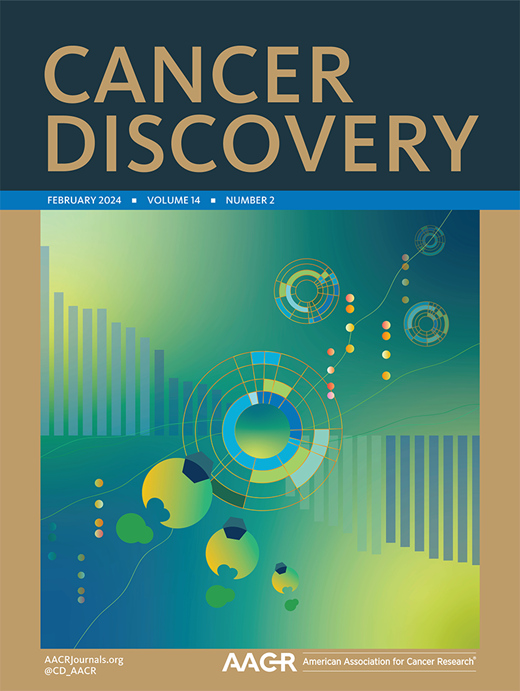初始抗cd19 CAR - t细胞治疗对r/r LBCL患者后续抗cd22 CAR - t细胞制造和临床结果的影响
IF 29.7
1区 医学
Q1 ONCOLOGY
引用次数: 0
摘要
大b细胞淋巴瘤(LBCL)患者在抗cd19 CAR - t细胞(CAR19)治疗后进展不佳。随后的CAR - t细胞治疗显示出希望,但残留的CAR19和早期复发的影响仍不清楚。我们在一项1b期试验(NCT04088890)中评估了37例接受抗cd22 CAR - t细胞(CAR22)治疗的car19难治性LBCL患者。在33名可评估的患者中,17名在car22输注后残留的CAR19无法量化。单细胞RNA测序显示最小的CAR19/CAR22共转导。峰值CAR19转基因水平不影响CAR22的疗效或毒性。白细胞摘除术患者的CAR22产品;car19后6个月CD4+ naïve T和CD4+/CD8+ T-中枢记忆(TCM)细胞升高,CD4+ T效应记忆细胞降低。CAR22中药和TEM的高、低百分比分别与CAR22转导效率和实现完全缓解相关。残留的CAR19和白细胞分离时间对结果没有显著影响,而CAR22产品组成与治疗反应显著相关。本文章由计算机程序翻译,如有差异,请以英文原文为准。
Effects of an initial anti-CD19 CAR T-cell therapy on subsequent anti-CD22 CAR T-cell manufacturing and clinical outcomes in patients with r/r LBCL
Patients with large B-cell lymphoma (LBCL) progressing after anti-CD19 CAR T-cell (CAR19) therapy have poor outcomes. Subsequent CAR T-cell therapy shows promise, but the impact of residual CAR19 and early relapse remains unclear. We evaluated 37 CAR19-refractory LBCL patients who received anti-CD22 CAR T-cell (CAR22) in a phase 1b trial (NCT04088890). Residual CAR19 was unquantifiable in 17 of 33 evaluable patients post-CAR22 infusion. Single-cell RNA sequencing revealed minimal CAR19/CAR22 co-transduction. Peak CAR19 transgene levels did not affect CAR22 efficacy or toxicities. CAR22 products from patients undergoing leukapheresis > 6 months post-CAR19 had higher CD4+ naïve T and CD4+/CD8+ T- central memory (TCM) cells, with lower CD4+ T-effector memory cells. High and low percentages of CAR22 TCM and TEM, respectively, were correlated with CAR22 transduction efficiency and achieving complete response. Residual CAR19 and leukapheresis timing did not significantly affect outcomes, while CAR22 product composition was significantly correlated with treatment response.
求助全文
通过发布文献求助,成功后即可免费获取论文全文。
去求助
来源期刊

Cancer discovery
ONCOLOGY-
CiteScore
22.90
自引率
1.40%
发文量
838
审稿时长
6-12 weeks
期刊介绍:
Cancer Discovery publishes high-impact, peer-reviewed articles detailing significant advances in both research and clinical trials. Serving as a premier cancer information resource, the journal also features Review Articles, Perspectives, Commentaries, News stories, and Research Watch summaries to keep readers abreast of the latest findings in the field. Covering a wide range of topics, from laboratory research to clinical trials and epidemiologic studies, Cancer Discovery spans the entire spectrum of cancer research and medicine.
 求助内容:
求助内容: 应助结果提醒方式:
应助结果提醒方式:


